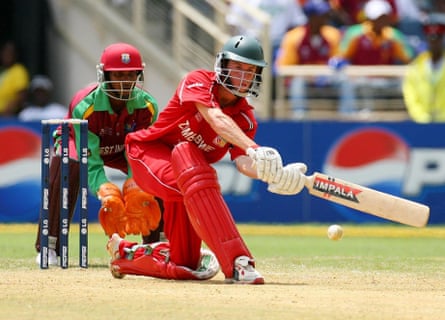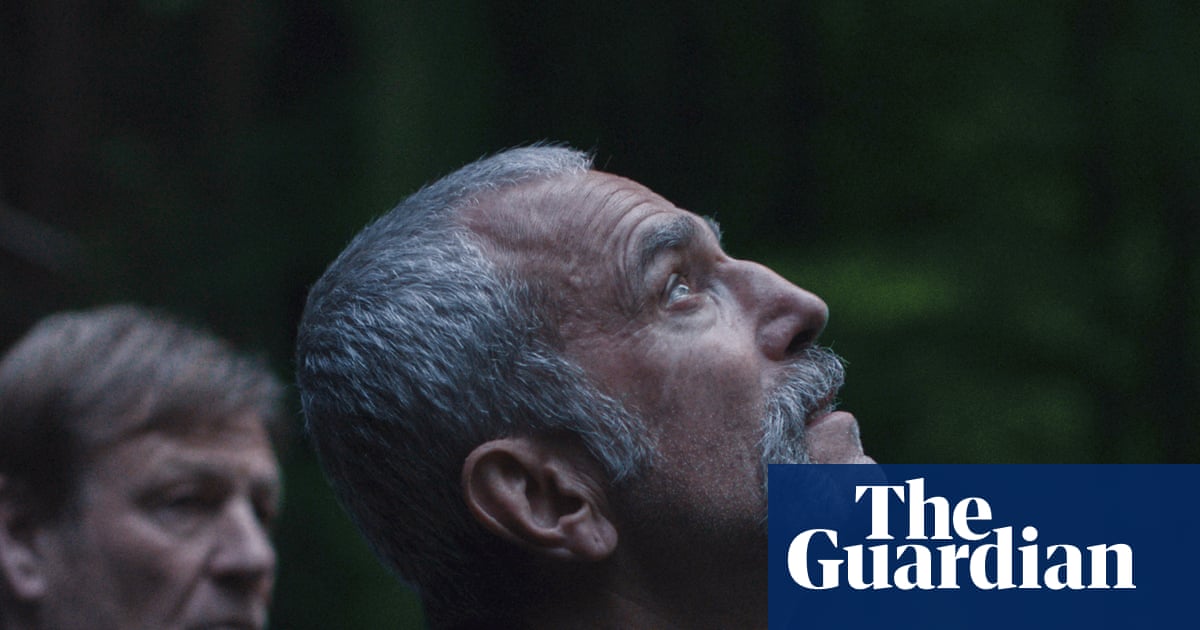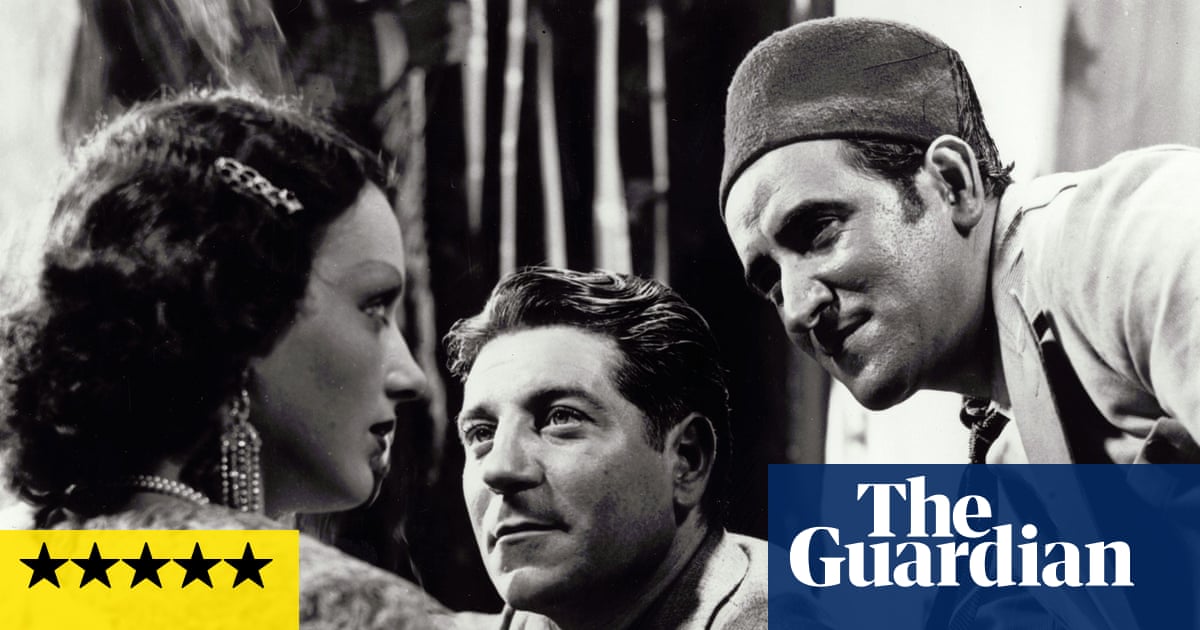In a Zimbabwe squad not exactly packed with experience – only three of its 16 members have played as many Tests as the 21‑year‑old English spinner Shoaib Bashir – Sean Williams is the most glaring of exceptions. When Jimmy Anderson took off his England cap for the final time last summer, 21 years, six months and 27 days after his debut, Williams took over as the cricketer with the longest ongoing international career: by the final day of the one-off Test at Trent Bridge this week he will be able to look back at precisely 20 years and three months at the highest rung of the cricketing ladder.
And still he is breaking new ground: England, who have not played Zimbabwe in any format since 2003, would be the 28th opponents of his international career, taking him two short of the world record held by the retired Kenyan Collins Obuya. “Definitely for me as an individual, it makes it massive,” he says.
Williams’s journey to Trent Bridge has been long and circuitous, full of dips, peaks and dizzying swerves. Perhaps this is why for all his ability and longevity, the all-rounder has played only 54% of Zimbabwe’s Tests since his debut, 53% of their ODIs and 49% of their T20s. “It’s been a rollercoaster ride of ups and downs – mainly downs,” he says.
“I couldn’t make up my mind, did I want it, didn’t I want it? I’d often just pull out. And then I’d go back, and then I’d leave again. And coaching was poor – a lot of things were really poor and far from up to standard, and I disagreed with it. So I ended up saying I didn’t want to play and then not playing and then serving my punishment.
“I feel like I’ve underachieved a little bit in my career, because of that emotion. I was a bit of a naughty boy, always fighting against things that I thought were wrong. And it was never like, ‘OK, you can come back now.’ I had to work hard again. I’d lose a contract and start again at the bottom, come back up again, throw it away and then come back up again. I definitely should have played a lot more, probably close to 250 ODIs [he has played 162]. But I’m very happy with the decisions I made, happy because I learned a lot through all of those little mistakes. It’s like playing cricket: if I don’t make any mistakes in the nets or in training I’m not going to gain anything. Trying new things, making mistakes, is the only way I’m going to learn. That’s how I’ve looked at it.”
Of all those unexpected twists perhaps the most significant came in 2003, when he was called up to represent Zimbabwe as a full, senior international for the first time – in hockey. Though Williams’s father played first-class cricket this was the real family sport: his mother, Pat, was part of the Golden Girls team that unexpectedly won the nation’s first Olympic gold medal in 1980, while his father played for and later coached the national team, and both of his brothers captained it.
“I was selected to go to Nigeria for the All-Africa Games when I would have been 16 years old,” he says. “But there was a political story [administrators had submitted the wrong names for accreditation, apparently deliberately] and three‑quarters of the team ended up pulling out and going back home. I knocked hockey on the head right there and then, and never went back. At the time I was very frustrated, but I didn’t know what was to come for me in cricket.”

From being on the verge of becoming an international hockey player at 16, Williams was an international cricketer at 18. “I always enjoyed my cricket. I used to go and stand on the boundary and wait for the players – Streaky [Heath Streak], Andy Flower, Grant Flower, Tatenda Taibu, Henry Olonga, Pommie Mbangwa – to come sign my things, and then next thing I was in the changing room with all of them. It was like, ‘Jeez, this has come quick.’
“I just had this natural talent of hitting a ball. It was just there. It was a gift I was given that I didn’t even know I had until I got older and started to understand how to use it a little bit better. I had a lot of fear of getting hit with the ball back in the day, so I used to bat really low down the order. But then my dad started to push me more as a batsman, and then [Zimbabwe’s former coach] Phil Simmons found me and I never looked back. When he found me I must have been batting about nine, 10. Then I went straight up to No 3, No 4, and yeah, never looked back.”
Williams is doing plenty of looking back now. He turns 39 in September, retired (briefly) four years ago and is unlikely to hold Anderson’s record for long. “I’m just trying to let cricket be the decider of when I go. If I can stay in the side based on performance, then there’s no real need to stop playing.” But he knows he is approaching the next chapter. “The biggest fear that I have, it’s actually going back home,” he says. “There’s certain ways that I am, certain ways that I live, and my wife and children are at home and they do things very differently to how I would do them.
“It’s a transition phase, really, that you’ve got to go through and just accept. When you’re on tour things always happen for you. Everything’s on time: buses on time, training from this time until this time. You can have an afternoon nap, you can head off to the gym, you can go out for dinner. When you get back home with the wife and kids a lot of self needs to be removed. It’s quite difficult to be a husband and a father while still trying to be as professional as you possibly can.”
after newsletter promotion
Williams has two young girls, aged two and five, and if life with them entails an element of chaos that he is unused to, life without them means sacrificing shared moments and memories. “I’m asking myself a lot these days whether it’s worth that sacrifice. It’s getting to the point where there’s a lot of things more important than pushing on through a career in cricket that’s, you know … it’s cricket. My daughter actually asked me before I left: ‘Do you even wanna go on tour?’ And I was like: ‘Jeez, that’s a good question for a five-year-old.’ So, yeah, she got me thinking there. I don’t think it’ll be too much longer now.”

The appointment last year of the South African Justin Sammons as Zimbabwe’s coach, working with his compatriots Charl Langeveldt and Rivash Gobind, gave Williams a fresh appetite for the game, with the three-wicket win last month against Bangladesh in Sylhet – their first in a Test for four years – evidence of a recent improvement. “They’ve worked with the best in the world. Having the ability through them to tap into those people’s minds is something that doesn’t come around too often,” he says. “I didn’t want to miss that opportunity, not only as a player but for my future knowledge, that I could possibly pass on to other people. Our training has changed to another level.
“Getting over the line in Bangladesh showed the change. There was a little wobble and I was like: ‘Oh shit, here we go, it’s going to happen again.’ Getting through that was a huge thing in my eyes because I’ve seen us fall apart under those pressure situations many, many times. This group of players is different.”
A second career in coaching beckons, with Williams hoping he has learned, in a variety of ways, from his mother. “She coached my age group [at hockey] when I was a youngster, and she basically covered exactly what we’re covering now: to remove fear. ‘We’re gonna go and win’, that’s it. But the gold medal was a huge thing in her life. I mean, that’s the ultimate. I did notice something that she did after winning the gold medal and stopping playing hockey, and once us boys were finished: she let go. Like we’re discussing now, the mental strain and sacrifice, eventually you just have enough. She’s a little bit elderly now so she’s at home, living with us, and she actually doesn’t talk about hockey much, if at all. I’m hoping I don’t push myself to that point.”

 3 months ago
75
3 months ago
75

















































